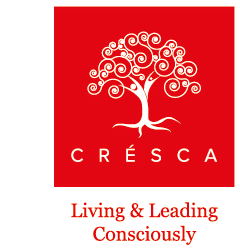Groups and teams provide an important phenomena for understanding our innate need to belong and yet be separate. This paradox, which seems fairly universal, might speak to our simultaneous need for containment (which a group provides) and for independence and free expression, which a group might cripple. In a way, the question that this key paradox carries is “How can I exist within boundaries and not lose my voice?”
The term “containment” stems from Bion (1970) and is closely associated with the concept of early infant-mother communication and is a critical basis for the development of reflective capacity. In organisational life, this containment becomes imperative when there is a breakdown to task or one’s role. The funny thing about containment is that it’s absence is felt far more than it’s presence, which can often be taken for granted.
This need to belong and remain independent shows up in many ways in groups – anxieties, fears, over-focus on task, rules and projections, among others. I am finding that in my work with groups, I end up providing containment through clarity of roles, task, physical boundaries and schedules. While all this, in some ways, takes group members away from being independent and having to follow some “standard”, it appears to be a critical part in containing anxiety especially in transient groups and teams, which otherwise do not have a strong group identity and in which group members question their own competence and “success” in the group. This further appears to manage one’s own questions and doubts of the other aspects of group dynamics that invariably emerge – role, power and authority among others. This commonness perhaps also provides for the “belonging” as the group would then appear to have a common set of norms, agenda and common things “to do.”
Once this containment is provided for, it appears that group members slowly transition to finding their voice within a group. The artifacts of containment become a safe and bounded place in which I can belong and yet assert and express my individuality. This dual need of ours to belong and not belong surfaces in all kinds of anxieties and frustrations, the chief one being a dance between belonging and a fear that this belonging will compromise one’s independence. This is further complicated by group members needs for any kind of affiliation being very different, often governed by their early experiences and attachments to their own family structures. Group members having a high need for affiliation or acceptance might appear to “belong” more easily and yet take much longer to find their own voice. Those not having this need as strongly might come across as being anti-group, when in fact, they might be navigating and defining their own definition and equilibrium between belonging in a way that does not compromise their independence.
As each group member navigates this very personal inner battle and yet remains engaged in the group through what might feel like a messy inside, the courage of group members for authentic dialogue becomes critical. It’s the courage to connect with what parts of the self the group evokes, with one’s own frailties and humanness. And in the confines of this authentic dialogue, we start experiencing the subtle shift in group life, from a collection of people coming together for a supposed task to a sense of team where each one starts holding a part of the other in themselves; where my anxieties are held by the group and a greater psychological holding emerges and where trust, compassion, courage and acceptance become the dominant currency of authentic exchange.
While all this can evoke a wide range of emotions and behaviours for group members, from indifference, anxiety, frustration, tentativeness, “testing waters” to very magical group energy which can be personally transformational. This journey from potential suspicion of the group to hope and belonging is organic in nature and cannot be pre-determined or defined. An essential quality for groups to be a harbinger of change and personal growth for individual members seems to be a willingness to engage fully with one’s own narrative, without necessarily knowing where it is all going. Herein, we come back to the essential and yet paradoxical nature of groups – the task or project providing containment and boundaries to explore the more unbounded parts of our Being in groups.
But beneath this paradox that plays out in perhaps all of us, I wonder if there is a more basic question we carry and that is around a search for ones own significance.


It’s very interesting for me to read. And I’m really surprised: I’m often thinking about similar things, but in a bit different dimention. Now I also see this side. They’re truly paradoxical needs (belonging and remaining different) when separated one from another. Another side is that both are complementary parts of only one need. The need to reflect. And there are several parts in this case: the environment=”the light” (a group and the group language/terms) and yourself =“the mirror” (the brain…+ the voice, when you voice it + the body, when you act it + special staff if you paint or photo or compose).
For me this side is also very clear through the same vivid picture of mother – infant.
(I’ve never thought about that before) I found out a question also: “How and why could I voice if there’s no group I belong to?”
In my mind after reading your post there’re two parts of the puzzle. Thank you. Looking forward to read more from you.
lovely Kavitha – you have captured what I have observed happening for me in groups very well and helped me in the inquiry of what are the characteristics of groups that allow me to ‘show up as myself’ more….or not. Thank you